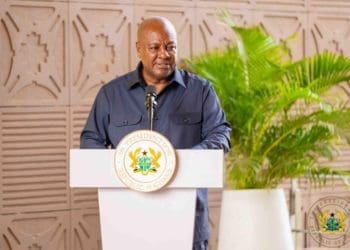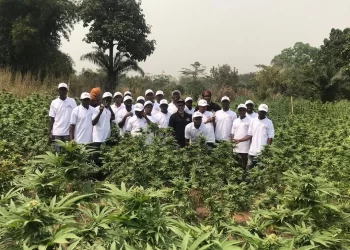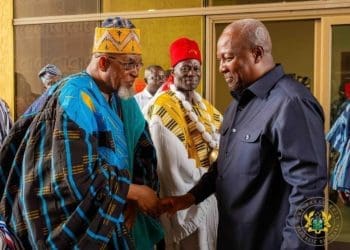The Director-General of the West African Health Organisation (WAHO), Dr. Melchior Athanase J.C.A. Aïssi, has called on African governments to accelerate the integration of traditional medicine into their national healthcare systems, stressing that indigenous knowledge offers a rich source of remedies that can help tackle the continent’s pressing health challenges.
Speaking at the commemoration of the 23rd African Traditional Medicine Day on September 1, 2025, Dr. Aïssi urged member states to embrace traditional knowledge as a foundation for innovation while ensuring that safety, efficacy and quality standards are upheld.
Harnessing Africa’s heritage for modern healthcare
According to Dr. Aïssi, Africa is at a crossroads, where health systems are strained by repeated crises, inequalities in access, and dwindling resources.
Against this backdrop, he said, it is imperative to look inward and draw on centuries of traditional knowledge passed down through generations.
“Our traditional knowledge of health is rich in treatment solutions, both in terms of products and practices rooted in our cultures,” he noted. “However, in order for them to be fully integrated into our healthcare systems, they must also meet safety, efficacy and quality requirements.”

He emphasized that traditional African medicine is not just a relic of the past, but a vital pathway to the future—one that can strengthen health resilience and support the achievement of Universal Health Coverage across the region.
Theme: Strengthening the evidence base
This year’s celebration, held under the theme “Strengthening the evidence base for traditional medicine”, sought to highlight the importance of applying scientific rigor to traditional knowledge.
The Director-General explained that validation through research is crucial to gaining broader recognition and ensuring that herbal remedies and indigenous healing practices become fully credible parts of national health systems.
Dr. Aïssi stressed that building an evidence base requires structured efforts, including the development of evaluation protocols, creation of regional registries, and fostering partnerships between universities, research centers, and traditional practitioners.
Research and innovation as catalysts
To accelerate progress, Dr. Aïssi urged countries in the ECOWAS sub-region to strengthen their support for research institutions and universities that focus on traditional medicine.
He outlined several priorities, including accelerating scientific validation of medicinal plants and indigenous practices, protecting traditional knowledge through fair and harmonized intellectual property systems, supporting local innovation to develop safe, effective, and affordable herbal medicines and encouraging partnerships that bridge science and tradition to create innovative remedies.
“Together, by combining rigorous research, political will and respect for our traditions, we can build a strong, credible and fully recognized African medicine,” he said.
WAHO’s commitment
The West African Health Organisation reaffirmed its commitment to guiding member states in developing and strengthening evidence-based policies that give traditional medicine a central role in healthcare delivery.
WAHO said it considers the recognition and integration of traditional medicine not just a cultural duty but also a strategic necessity for building sustainable health systems that can withstand shocks such as pandemics and supply chain disruptions.

A strategic opportunity for Africa
The African Traditional Medicine Day, celebrated annually on September 1, provides a platform to reaffirm the continent’s commitment to this vital heritage.
For its 23rd edition, the commemoration was described as a “strategic opportunity to put local knowledge back at the heart of public health policies.”
By elevating traditional medicine through scientific validation and structured integration, advocates believe Africa can unlock solutions rooted in its own soil, strengthen resilience against future health crises, and expand access to care for millions who still struggle to afford or access modern pharmaceuticals.













